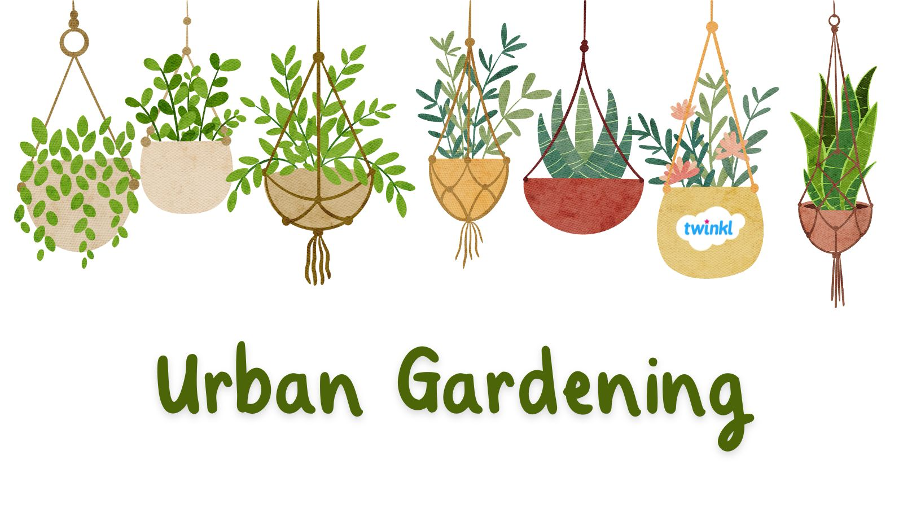Fresh fruit and vegetables from one’ own garden – for many of us, this is a dream scenario. The degree of urbanisation in Switzerland is increasing every year. According to the Federal Statistical Office, the majority of the Swiss population currently lives mainly in urban areas. However, only very few city dwellers are lucky enough to have their own garden – and it is precisely here that the desire for more greenery arises.
In addition, topics such as sustainable lifestyles and healthy nutrition are very much in vogue. This is why the concept of urban gardening has become popular in recent years, especially in cities like Basel, Bern and Zurich. However, gardening in the city is not only interesting for adults, but also for children.
What is urban gardening?
Simply explained, urban gardening means gardening in a small space: a balcony, a terrace or even a windowsill is all you need to get started. The goal is to sustainably cultivate small areas to grow your own plants or your own fruits, vegetables and herbs, thus contributing to environmental conservation. So what counts here is ingenuity.
What do you need for urban gardening?
You definitely don’t need expensive utensils for urban gardening. Even the smallest cultivation area is sufficient for planting and you can use any container or vessel for this. A box, pallet, plant bag or an old flower pot, for example, can be transformed into a planting space with a little colour and skill. What you really need for urban gardening is a little creativity as well as a desire and joy for gardening.
Inexperienced gardeners don’t need to be afraid, because previous knowledge is not absolutely necessary. You can get inspiration from like-minded people on platforms like Pinterest. You can ask experts for tips in specialist shops and even buy ready-made products that will turn you into an enthusiast gardener.
Herbs like rosemary, for example, are perfect for the balcony or windowsill and need little attention. The small garden can also be enriched with various vegetables, beautiful flowers and small fruits such as berries, without the home-grown plants becoming a full-time job.
The advantages of urban gardening

- Beautification of the inner city is made possible.
- For many people, gardening is an activity that provides balance and relaxation. It is also no wonder that the need for nature is increasing, especially in urban areas, because everyday life is often hectic.
- Through urban gardening, the appreciation of regional food and nature is truly lived.
- Direct access to regional and seasonal food is created.
- Urban gardening further serves to preserve biodiversity. The bees will be grateful, because with your mini-garden you too can become a bee protector (German source).
- Honey bees and wild bees help our ecosystem and ensure that we have enough to eat, because bee colonies pollinate not only flowers, but also vegetables and fruits.
- To create a bee-friendly flower bed, plant seeds for plants such as sunflowers, lavender, wild sage or catmint. These flowers are very popular with bees, so not only will you be beautifying your mini garden, you will also be helping the bees to do their job.
- If you want to do even more good for the bees, you can even build your own wild bee and insect hotel with the free craft instructions from Twinkl and place it in your garden or on the balcony.
- Urban gardening also gives children their first experience of gardening, making it easier for them to understand the interrelationships of nature and to express their creativity.
Why is urban gardening beneficial for children?
Gardening with the family is a chance to introduce the little ones to topics such as sustainability, environmental protection and healthy nutrition in a playful way. The children’s willingness to learn is thus actively promoted and ecological connections become clearer over time. The fruits or vegetables that the children grow themselves also taste better and can be used to prepare a healthy snack (German source).

Urban gardening thus has many benefits for children; we have listed the most important ones for you here:
- Strengthening social skills by being together with family and friends.
- Encouraging creativity and a willingness to learn.
- Teaching the values of work and responsibility.
- Acquiring manual skills.
- Enthusiasm for important topics such as sustainability, environmental protection and healthy nutrition.
Urban gardening thus offers the opportunity to transform grey concrete into a colourful oasis of peace and relaxation. In addition, the organic cultivation of fruits and vegetables allows budget-friendly access to regional and seasonal foods that enable sustainable living for young and old. So why not try it out?











What do you think?